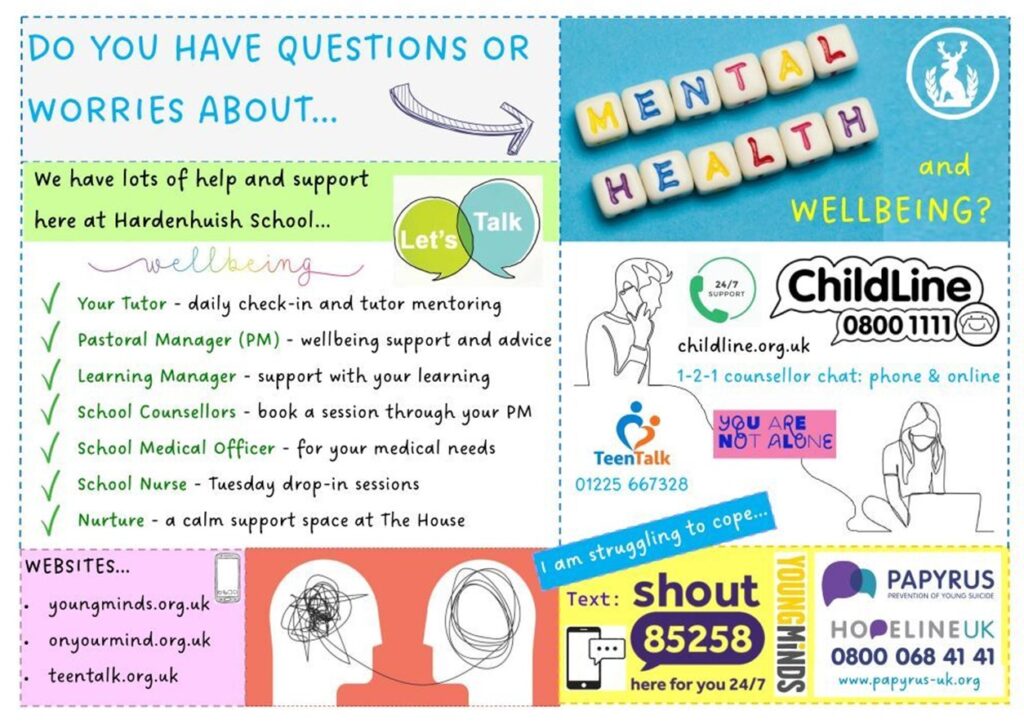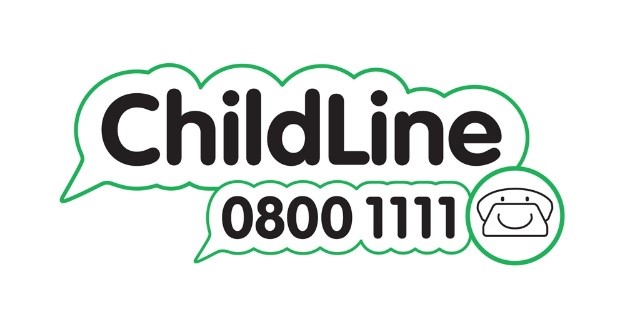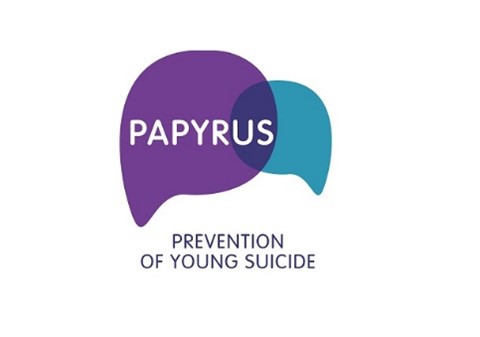Parents/Carers: How to support your child with their wellbeing and mental health
As parents, we know that the most important thing in our lives is our children. We love them, we support them, we do everything we can to ensure their happiness and help them develop into nice human beings. Because of the depth of our feelings, it can make it difficult to always help them as well as we want to as they go through struggles in their lives. We often cannot emotionally disconnect ourselves from the situation. We want to slay dragons and wave a magic wand and make everything right with their world. Unfortunately, none of these things are possible which can leave parents feeling overwhelmed, angry, useless and upset.
Thankfully, society’s understanding about mental health has grown over the years and this has helped reduce the stigma surrounding it. There are many websites and agencies that offer advice on wellbeing, and to those who recognise that someone in their lives needs help. At Hardenhuish we also have lots of provision to support your child if they are struggling with their mental health, and believe strongly in helping them to live happy and fulfilling lives:

All pupils have been given a wallet card (something small which they can fit in a phone case/pocket/bag etc). This contains signposting to external agencies where they can also get help and guidance.
Sometimes, we need to look after our own wellbeing as well, and there is guidance on HERE
to help with your own wellbeing and mental health.
Here are a few organisations that we would advise you to look at if you would like more advice on how to support your child:
Conversations about wellbeing:
Quite often when our children come to us with a problem that they are struggling with, we offer advice based on our own experiences. Our own childhood and lifestyle will influence how we feel about certain things like a natural bias. Having an empathetic approach can help us as parents to try to understand what our young people are going through – even if we don’t understand!
The world is a very different place to the one that we grew up in. Each generation faces their own challenges and will need to learn to navigate their way through life’s obstacles. Whilst our own experience can be a useful bench line, in some cases when our teenagers shout that “We don’t get it!” they are completely right!
Sometimes just being there to listen can a vital part of encouraging our children to open up about their emotional wellbeing. If they seem reluctant to talk then here are a few conversation starters you might like to try:
How to Talk to Your Child about Mental Health | YoungMinds
Sometimes as parents we might notice changes in our child. These are some of the signs that they may give that they are struggling with their mental health:
- They may experience a change in displayed personality. They may become quieter than normal and seem withdrawn from things. Stopping what may have previously been their favourite hobbies or not talking or going out with friends.
- Lack of sleep is probably something that most adults have experienced, but our young people suffer too. When things are stressful, or we are worried and have lots on our minds, sleep can prove to be elusive. Unfortunately, this then exasperates symptoms of already poor mental health. If they are having difficulty getting to sleep, or even staying asleep, then they may look tired or become irritable. You may also notice these changes in their sleep patterns.
- A change in appetite can indicate mental health concerns, either eating more or less. Anxiety, stress or grief can cause a loss of appetite. Likewise, if things are tricky some people will turn to their favourite foods as a coping mechanism and ‘comfort eat’. With this you may also notice changes in body composition – something that can then impact their perception of their body image.
- Change in academic progress could show they are having issues with concentrating or focusing on school work. Often, when a person is overwhelmed, they may find facing school too hard and not want to go. This can look like increased sickness with no obvious symptoms, or flat-out refusal to attend lessons. In this situation it is best to seek school support as the longer it goes on the more chance of them becoming a school refuser. Likewise, overworking can indicate that they are struggling and using work as a coping mechanism to block out other problems they are facing.
- Experimenting with risky behaviours such as dangerous stunts or pushing boundaries. This could also include mis use of alcohol or recreational drugs. Taking excessive risks with their lives may mean they do not value their own life as much as they should.
- Self-harm – there are many ways in which children can harm themselves not just the stereotypical cutting of wrists. As parents being aware of any changes can help look for those warning signs. People of all ages use self-harm as a coping mechanism to feel more in control or to relieve some of the pressure from emotional pain. When the tension builds up this can be a way to get some temporary relief. Unfortunately, this process is a vicious cycle.
Each year at Hardenhuish we offer further advice on aspects of wellbeing at our Mental Health Parent Information Advice and Guidance Evening.






